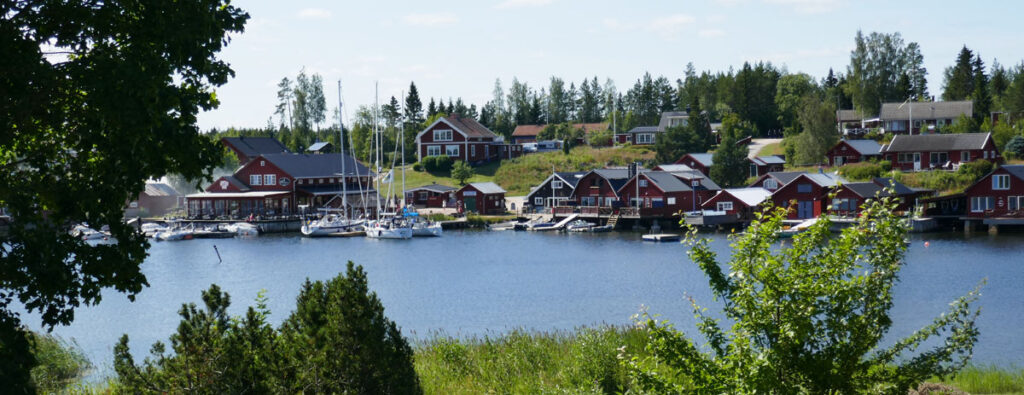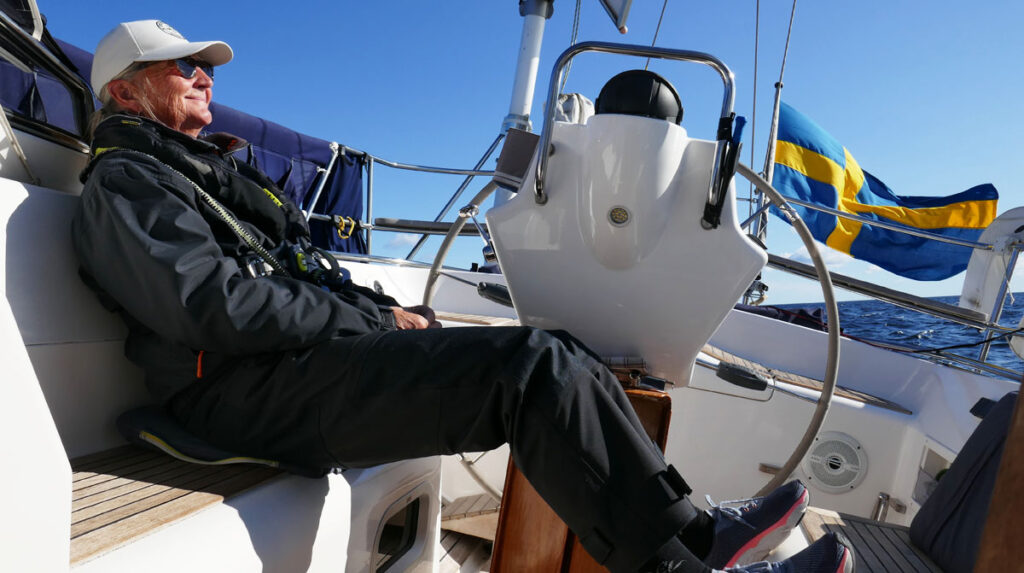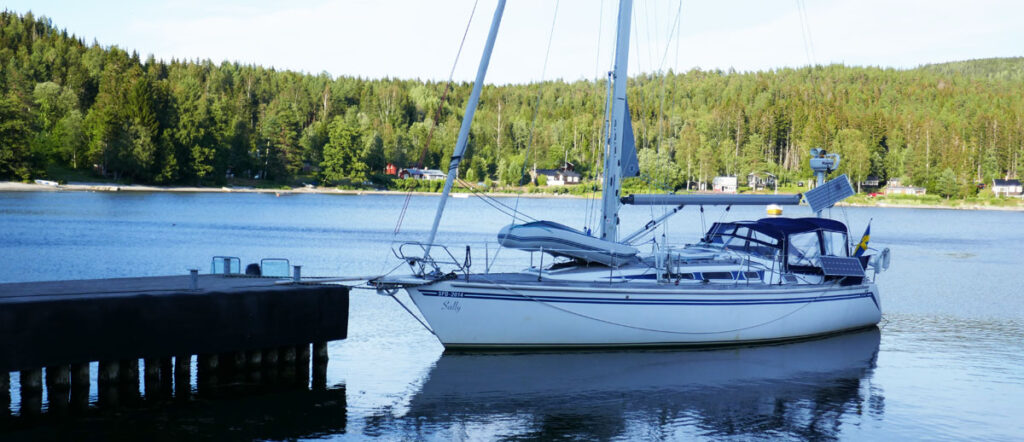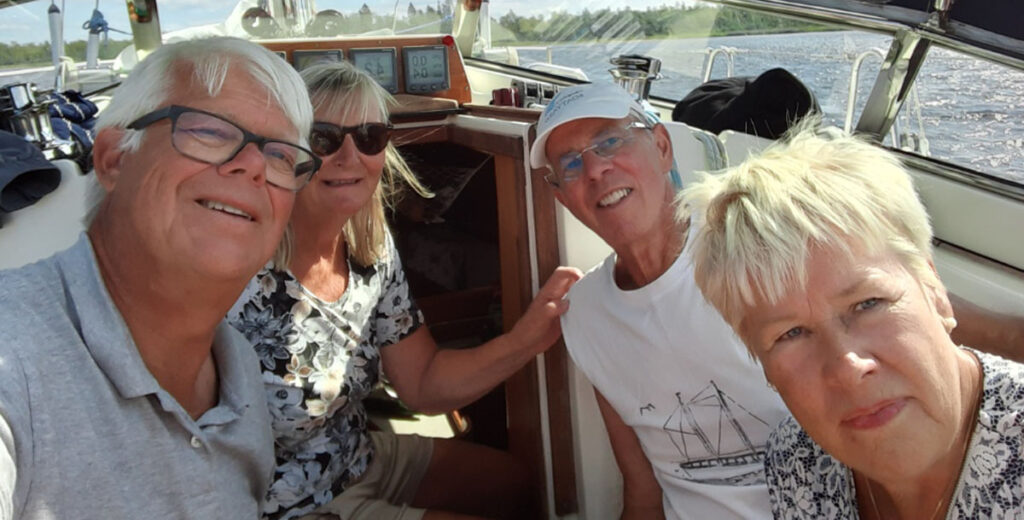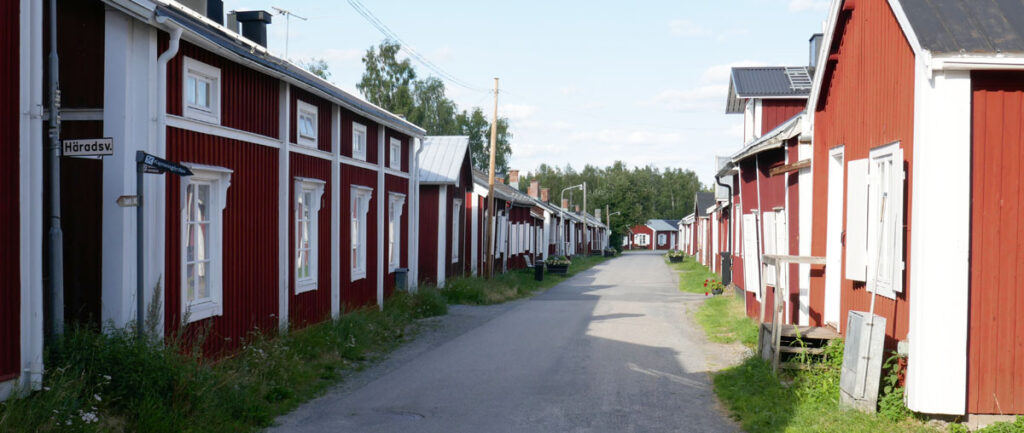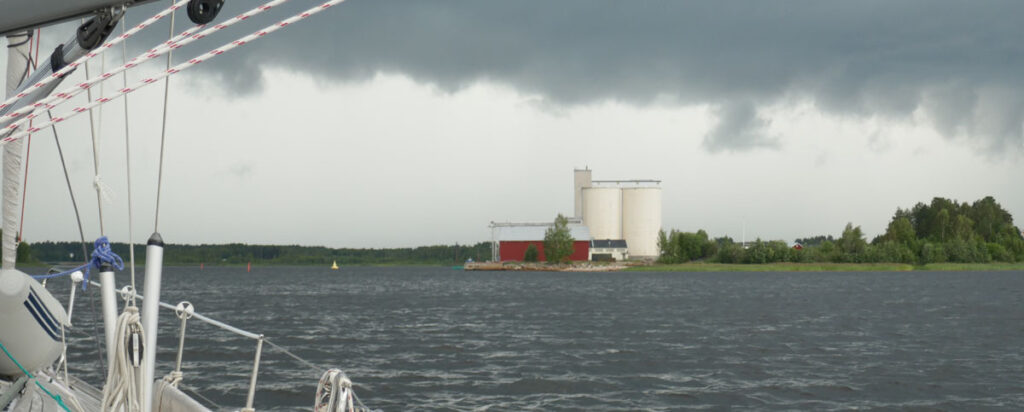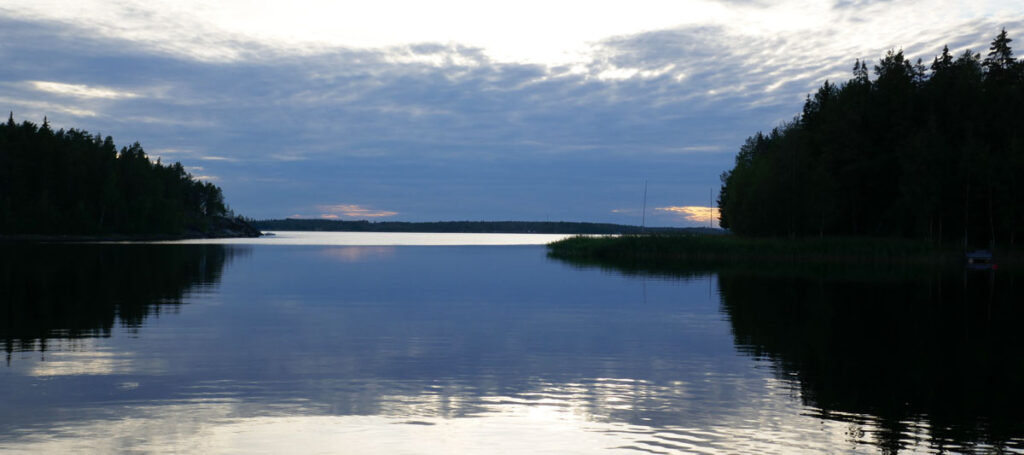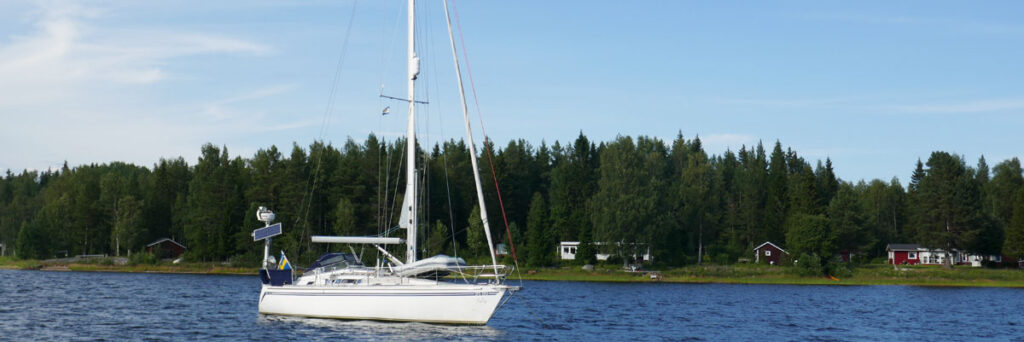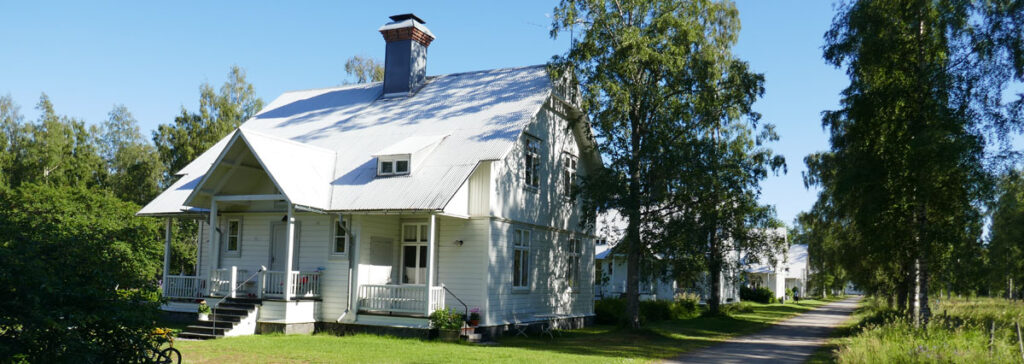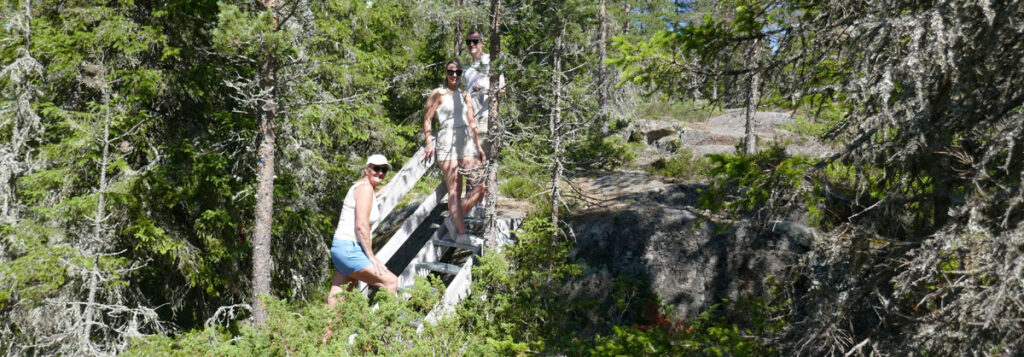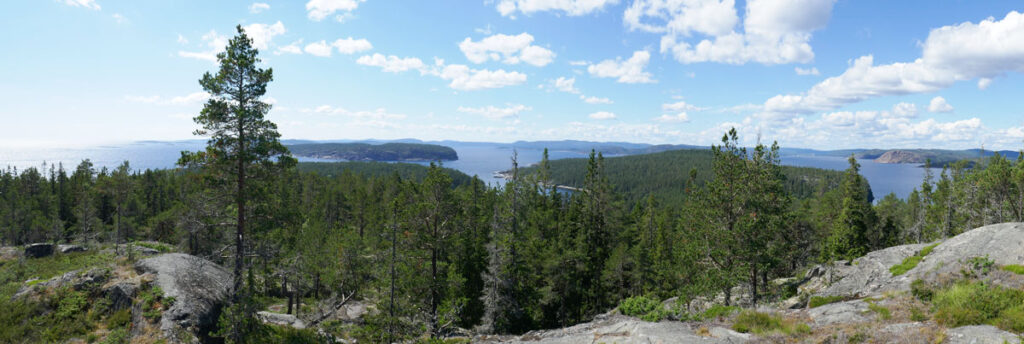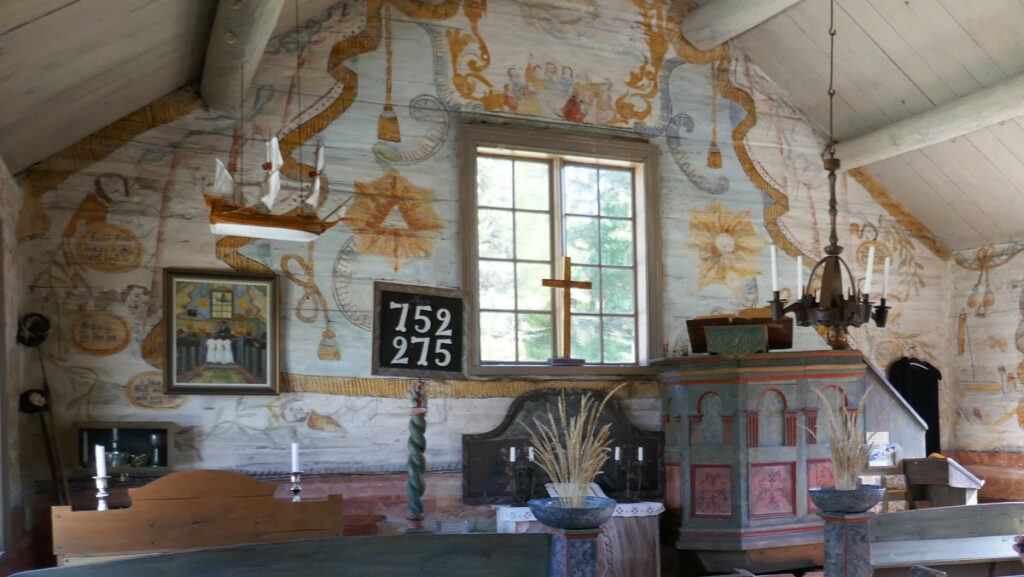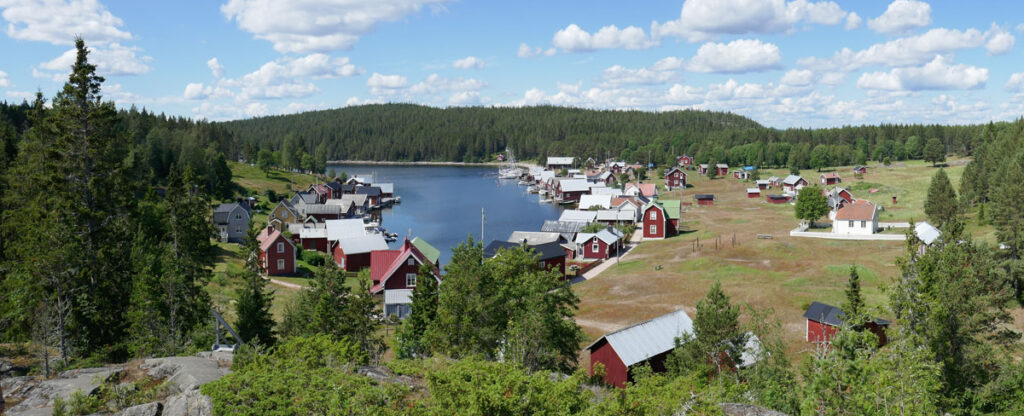Today was another long day at sea. We started early (before 7 am) as the wind was forecast to be from the N or NE until around 10. But, it died down shortly after the gennaker was up. Then a weak E came up and we changed to Code 0. It turned quickly to SE, i.e. headwind and then grows in strength and we find ourselves sailing with genoa and main barely laying our course.
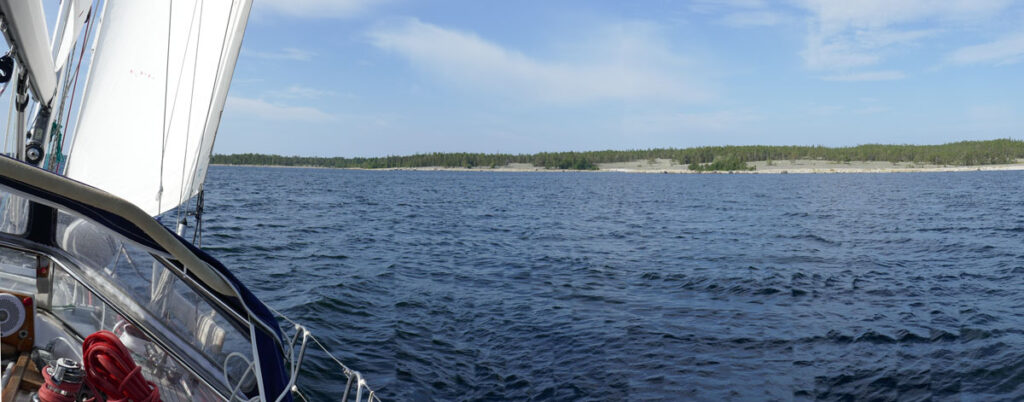
We sailed south very close to the coast and managed to get quite far south on short tacks east. There were some other boats on the water, all of them behind us, and we were holding our own quite well gradually leaving all but one behind. The only one slowly gaining on us was an X38 Performance with fancy golden sails. We sailed as high as them to the wind but not quite as fast bit, it was OK – they should sail much better than us.
The seas grew choppy as the day progressed and sailing towards and around Hornsladet turned out to be a relentless and long slug to windward. We got a short break by motoring through the Balso (Bålsö) sound. We had some hopes for the SXK buoy at Kuggoren (Kuggören) but it was occupied so we carried on another 10 nm down to Inneston (Innestön).

There is a much protected old harbour, not visible from the sound to the W, called Bakspan (Bakspån).It used to have both shop and tavern in the old days but nothing remains today. The chart showed less than 3 m and lots of rocks in the entrance whilst our pilot claimed that range markers and buoys would guide us in but did not indicate from where so we motored up and down the sound.
We finally spotted the barely visible range markers through the binoculars and very carefully motored in among the rocks. There were no sign of any buoys, we later learned that there used to be some but not anymore. We made it safely in (but leaving we touched a rock without damage or problems, possibly being just a little bit of the range line but, it is more likely that the stated depth of 2.5 m is an old figure (the land uplift here is about 1 cm per year)) and moored up to the dock where we were welcomed by a group of friendly local people. We got the impression that they were quite surprised that we had found this hidden gem.
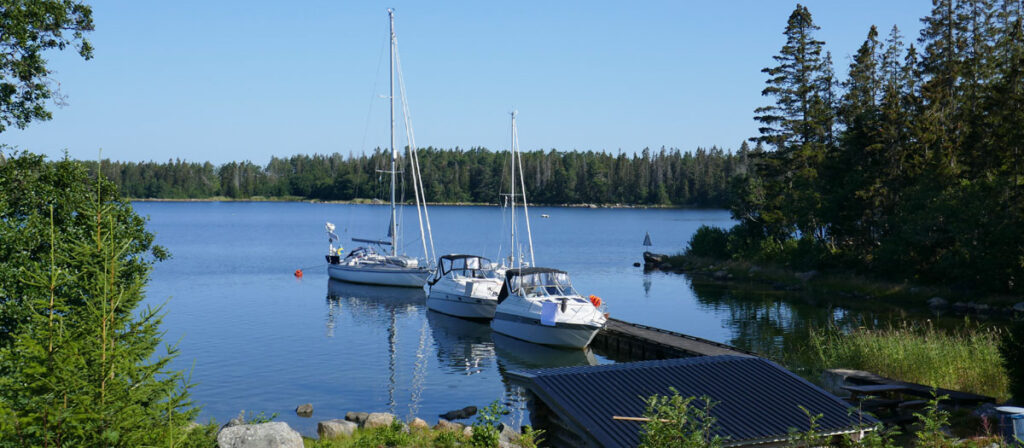
We joined in on the barbeque and spent a nice evening talking to a young couple that reminded us very much of our own situation 20 years ago. They had left their kids with their ex partners and taken of for a week on their own on daddy’s boat.

